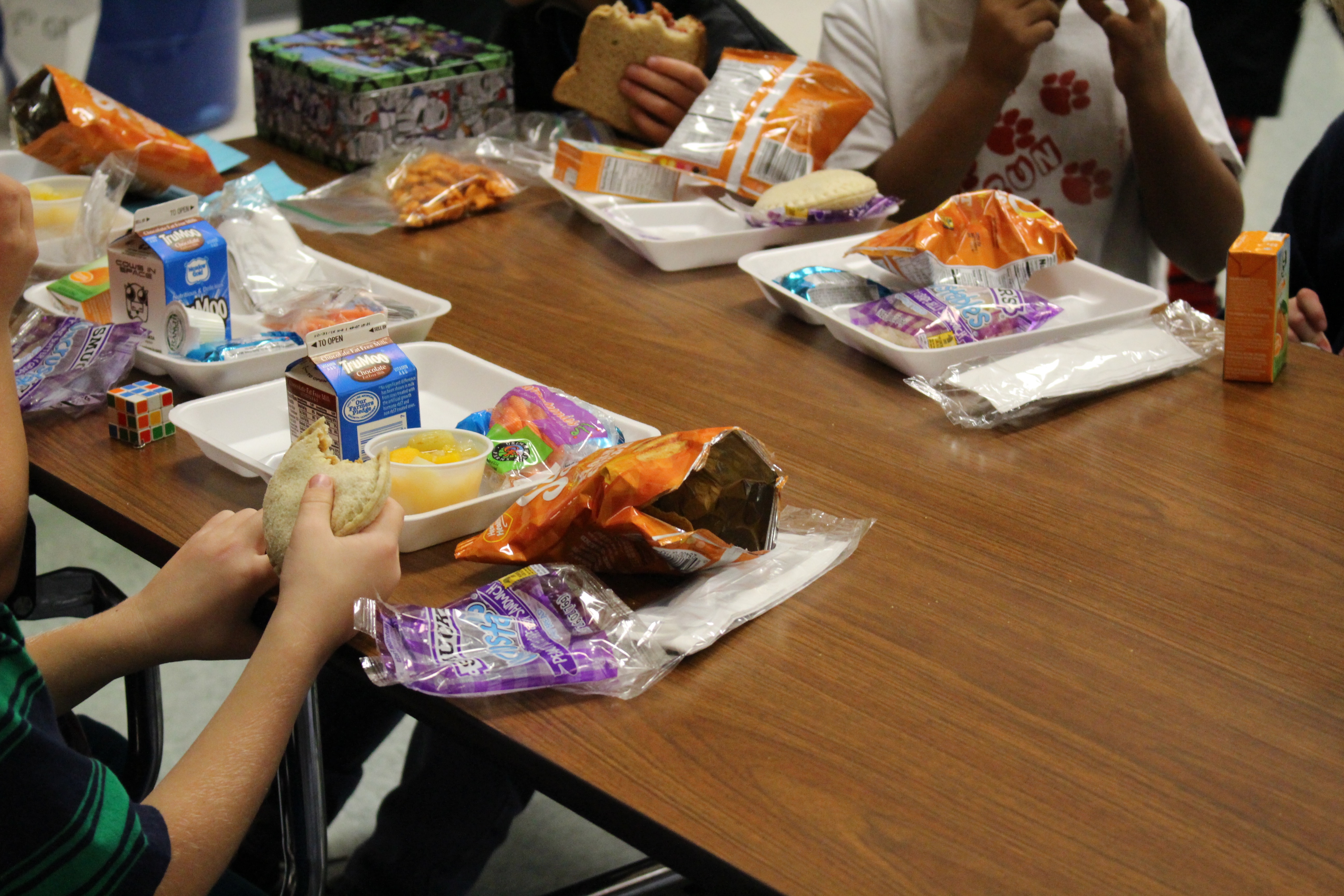
LOGAN – If a new game developed at Utah State University achieves its creators’ goals, parents in some Cache Valley communities may find their children requesting more fruits and vegetables at meal and snack times.
Heidi Wengreen, associate professor in the Department of Nutrition, Dietetics and Food Sciences, has worked with Professor Gregory Madden in the Department of Psychology to develop a game, known as FIT, that is currently part of a controlled trial at two schools in Cache Valley, Wilson Elementary and Nibley Elementary.
“The overall goal of the FIT game program is to encourage and motivate kids to eat more fruits and vegetables,” Wengreen said. “Also to get them to be more active.”
The game is a short narrative designed using gamification to simulate a video game-like scenario in a school cafeteria. Superheroes known as Field Intensive Trainee’s (FITs) try to defeat the Vegetable Annihilation Team (VAT). The VAT travels the galaxy trying to destroy all vegetation and the FITs enlist the help of the students to defeat the VAT.
“Gamification is the application of game-design principles to the task of positively influencing human behavior,” Madden said.
The behavior that they are trying to influence is children’s intake of fruits and vegetables. Each day the FITs give the children a new school-wide goal. It could be something as simple as, eat more vegetables so we can power our ship. By having their vegetable and fruit intake linked to a school-wide goal set by the FITs they have seen children significantly increase their fruit and vegetable consumption.
“Our latest study targeted elementary school children’s vegetable consumption in the cafeteria,” Madden said. “The FIT game doubled their vegetable eating. That is considered a large effect in the healthy eating literature.”
Undergraduate students in the Department of Nutrition, Dietetics and Food Sciences, Hannah Corcoran, Erica Rasmussen and graduate student Hali King, help collect data at the schools. Psychology PhD candidate Frank Sosa has worked with Madden to improve the game and its implementation.
“Ever since I was an undergraduate, I have been relentlessly motivated by the potential for social science to help improve people’s lives,” Sosa said. “The FIT game is the most innovative approach I have seen to apply the principles of basic science in a way that has a very high potential for a widespread improvement of the dietary decision-making of U.S. children.”
With their current study Madden and Wengreen hope to see the students sustain their fruit and vegetable intake over a long period of time. They have also focused on developing the characters further and making the game easier to manage with the goal of having schools across the state use the FIT Game to help students develop healthy eating habits.
“We tried to go as low tech as we can in this case to keep the cost down, so we wouldn’t have to worry about which schools had the funding or the technology to run the program,” Said Wengreen. “Our goal is to have a program we can share with schools that they can run on their own.”
Writer: KailCee Harrison, kailceeharrison@usu.edu
Contact: Heidi Wengreen, heidi.wengreen@usu.edu

